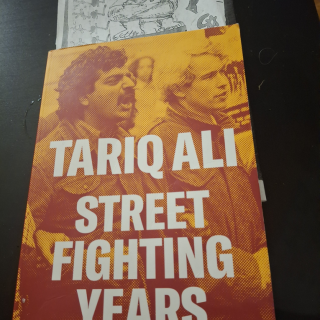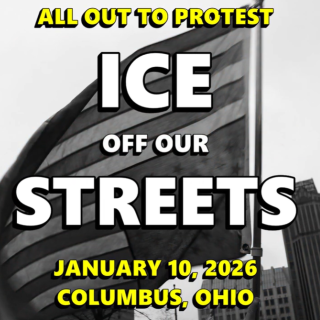One year after the beginning of the full-scale Russian invasion of Ukraine, the documentary takes us to the heart of combat through this war diary made during the second half of 2022. From Kharkiv and Bakhmut to Kherson, in the aftermath of the city’s liberation, this documentary bears witness to the ravages of war through the testimonies of soldiers, chronicles of the front and portraits of civilians, and shares with us the struggle of the Ukrainian people.
February 24 marked the one-year anniversary of Russia’s war against Ukraine. "Slava Ukraini" is an ode to the courageous civil society and armed forces of Ukraine. And it's a passionate call to action for the West to continue delivering support to Ukraine with increasing urgency and solidarity.
The film follows on the ground from the first days of the full-scale invasion of Ukraine by Russia through the extraordinary Ukrainian counteroffensive in September 2022 and until the aftermath of the liberation of Kherson at the end of the year 2022. We see the horrific attacks on civilian infrastructure; the evacuation of civilians in Donbas; following the valiant heroes in action near Zaporizhzhia nuclear plant, descending underground into the mines where workers are on a frontline, and more.
"Slava Ukraini" is a reminder to Western audiences that this war is also our war and that Putin’s barbarism is an attack on the entire civilized world. The film is a call to action for the US and Europe to increase aid, so that Ukraine can achieve a victory as quickly as possible. This is not a documentary of journalism. Nor is it a historical film. It's a film with a clear position, a partisan film shot on the site of a war devastating Europe’s border. A war whose outcome will determine our future and that of generations to come. It's a film straight on the battlefield with the defenders of Ukraine and with civilians being shelled, massacred, and terrorized. Despite our confidence in Ukraine’s ultimate victory, we're often overcome with rage and sorrow. The Ukrainians are our rampart.
But also never to stop facing up to what Foucault called “the great anger of things.” His work took the form of the purest abstraction and the most radically concrete experience of the world. The film exudes a sense of urgency, the urgent task is to draw people’s attention to the forgotten wars that no one cared about.
The documentary is interested in wars about which everyone believed the outcome would not affect the rest of the world, so everyone allowed themselves to forget about these distant hearts of darkness. The war in Ukraine is the opposite. It's not forgotten. Everyone is worried about it. The feeling is that, this time, we’re dealing with a world war. And the urgency is precisely to make clear that the planet stays focused on this war and is on the side of the Ukrainians; that we must stand resolutely united on this conflict, the outcome will affect the rest of our lives.
The question is, can democracy protect us from conflicts like this? Democracy has not that power. It’s too fragile, too uncertain. And the object of a desire that's too indecisive in the end. History is not moving in the right direction. It’s not moving in the wrong direction either, of course. Just not in the right one. And all the philosophies of history, whether optimistic or pessimistic, are wrong.
History doesn’t have a direction. It can go in any direction. In a way, that’s scary. But it’s also an opportunity. Because a group of people, an individual, can suddenly change everything. In Ukraine, it's the prototypical example. In principle, Russia should have won. But along comes a man, Volodymyr Zelenskyy, who, on February 26, 2022, appears via Zoom before a European Council meeting and says, “This may be the last time you see me alive.” The next day, he responds to President Biden’s evacuation offer with these words: “I don’t need a ride; I need ammunition.” Two sentences that say it all. A good man became a legendary man. And the history of this war, and of the world, is changed as well.
There are no heroes without heroic peoples. And it's the entire society, the Ukrainian people, seemingly touched by the same sort of grace as its president, who threw themselves into this war, without liking it and without having wanted it. And that tipped the scale. The deck is reshuffled. Geopolitics completely changes form. The world, which had written Ukraine off, now comes to its rescue with unprecedented solidarity. And the second-most-powerful army in the world goes from retreat to defeat, from condemnation to humiliation soon enough, we pray, to total capitulation. The Ukrainians are winning, but it’s a deeply bitter victory.
Where's the border with propaganda? Neutrality is the journalistic ideal. And it's, obviously, a fine ideal. You can’t avoid the rage. Rage unexpressed. But rage all the same. Rage at the crimes, which are enormous and overwhelming. Rage at experts who can’t think of anything except negotiating. Rage in the face of rampant appeasement. All of that drives us crazy.
There's the miracle of Zelenskyy. Followed by the miracle of Biden. Consider this old gentleman whom everyone thought was dead to emotion and even to politics. Who, at the beginning of the war, made it known to anyone listening that America would not move one foot. And then there he's at the Polish border in a refugee camp holding a Ukrainian child. Suddenly, something happens. No one knows what exactly. Maybe he’s just overcome with emotion. Maybe he understands something he hadn’t understood before. But there you've it. America gets involved. Deeply. This is the type of surprise that mankind holds in store, and that America often holds in store for the West. America woke up to fight Nazism, stood up against communism. It declared total war on Islamic extremism. And today, in the same way, it's aiding Volodymyr Zelenskyy’s Ukraine. That's what makes Ukraine’s war so special and Ukrainian nationalism so distinctive.
Opens on June 9 at Gateway









